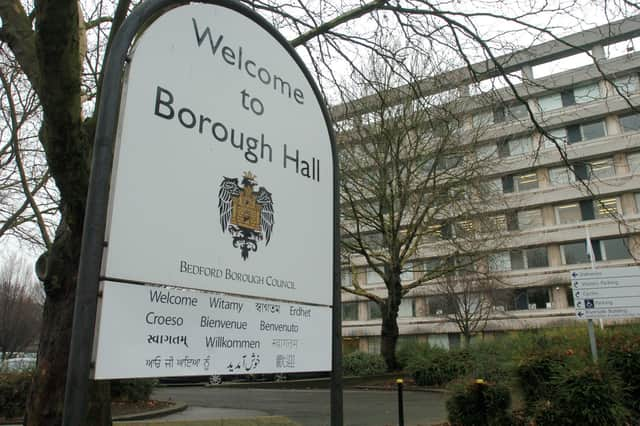57% score for Bedford in the Council Climate Plan Scorecards


An assessment of Bedford Borough Council’s climate action plan scored it two out of five for measuring and setting emissions targets.
The Council Climate Plan Scorecards were dismissed by a senior councillor as “desktop research” - but when asked about a report stating that the Bugs and Bees Project had reduced and offset carbon emissions, a council spokesperson said it “didn’t have a figure”.
Advertisement
Advertisement
And the Green Business Network said if the council didn't have the numbers to back up its claims, it isn't "doing it properly".
Climate Emergency UK (CE UK) used 28 questions to assess the climate action plans published online by UK councils to give each authority a score so residents can see how well their council compares with others.
Bedford Borough Council received a total score of 57 per cent, just below Central Bedfordshire Council’s score of 63 per cent.
The average score for single-tier councils was 50 per cent. Luton Borough Council scored 19 per cent.
Advertisement
Advertisement
Grace McMeekin, from CE UK, said: “It has been an important exercise to understand what makes a good council climate action plan and we hope that it will help councils learn from each other and up their game.
“A good plan will help a local authority deliver effective actions, as well as enabling local residents to know what their council has committed to and so hold the council to account.”
In response to councillor Ben Foley’s (Green, Castle Ward) question about the scorecards at the full council meeting earlier this month (February 2), councillor Henry Vann (LibDems, De Parys Ward) the portfolio holder for town centres and planning, told the council: “It [the scorecards] was a desktop piece of research based on documents and actually we're taking real action.”
But Jane Varley, Green Business Network manager, said while the council can claim it is taking “real action”, this will be based on the council’s own desktop research.
Advertisement
Advertisement
“Once the baseline figures are calculated, a plan sets out how the organisation will reach net zero carbon (or at least reduce carbon) and approximate milestones and targets.
“The proof is in the year on year reduction against the original figures and the future targets.”
The council’s Liberal Democrat Group was asked what the difference was between the paperwork exercise to rate the plan, and the paperwork completed to put the plan together.
Its spokesperson did not respond directly to the question, but said that since mayor Dave Hodgson was elected the council has taken “real action” on tackling the climate emergency.
Advertisement
Advertisement
An example of action taken by the council is the Bugs and Bees project.
An update on this was presented to last week’s (Monday, February 7) Climate Change Committee. The report said the changes to the council’s maintenance operations as part of the project will help the council to offset carbon emissions to help in reducing the effects of climate change.
The council was asked for a figure for this reduction.
A borough council spokesperson said “While we do not have a figure of the level of carbon reduced/offset by the Bugs and Bees project, the early stages of this project have shown really exciting developments in making Bedford Borough a greener, more wildlife-friendly place.
“For example, by reducing grass cutting in certain areas we are saving emissions by using less fuel for vehicles, and allowing wildflowers to grow, creating better habitats for local insects, and a more sustainable natural environment.”
Advertisement
Advertisement
Ms Varley said: “If the council is making claims, it should have the figures to substantiate them. If it can’t, then it isn't doing it properly.
“There are things that it can do that it knows will reduce carbon and will do good, but unless it measures this, there is no way of knowing by how much.”
At the full meeting, councillor Vann also highlighted that the council’s budget contained “real investment, real decisions, real money to provide change on climate change” to meet the council’s target.
The council was asked to provide an estimate of the environmental impacts that may be caused by the implementation of these new projects.
Advertisement
Advertisement
A borough council spokesperson said: “The council has committed to be carbon neutral by 2030, and mitigating and adapting to climate change is part of the council's decision making, including capital investment.
“The environmental impacts of each project are considered as part of their implementation.
"Projects such as the installation of further solar panels on council buildings make a direct positive contribution to carbon reduction, while for other projects we look to take mitigation measures such as lower carbon material sources, and sources that actively offset carbon while carrying out necessary improvement and maintenance works.”
